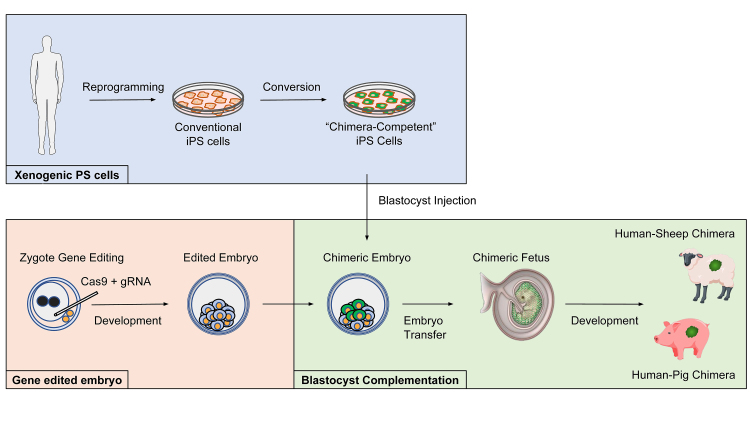Figure 1.
Interspecies blastocyst complementation. Organ generation via interspecies blastocyst complementation could help to solve the severe shortage of organ donors worldwide. The genetic modification of host animals to disable organ development may enable donor human PS cells or progenitors to populate the targeted organ with minimal competition from the host. First, embryos of large animal hosts such as pigs or sheep are edited using CRISPR/Cas9 to disable formation of a target organ. Second, human xenogenic chimera-competent pluripotent stem cells are generated – first by: 1) reprogramming somatic cells to generate conventional human induced pluripotent stem cells (iPSCs) followed by 2) converting conventional human iPSCs to a chimera-competent state. Human xenogenic PS cells are then introduced into host animal embryos by blastocyst injection and the resulting chimeric embryo is transferred into a pseudopregnant foster mother. The chimeric embryo is allowed to develop in utero and if the method is successful, human-pig or human-sheep chimeras are born.

